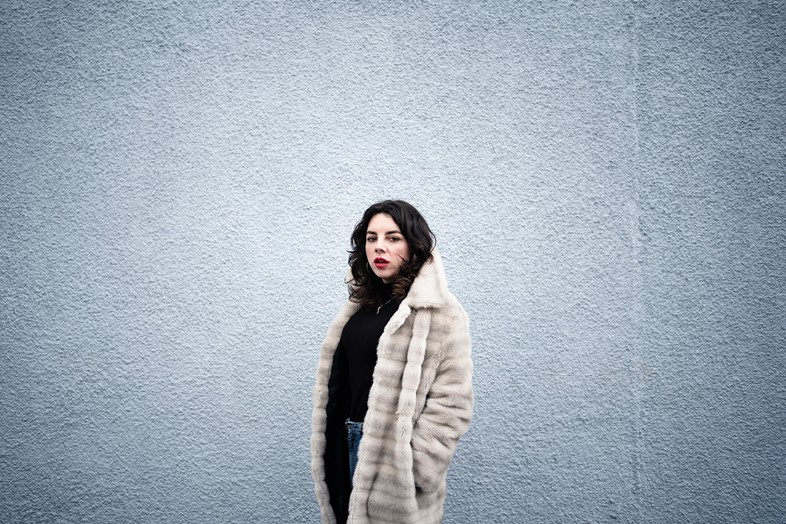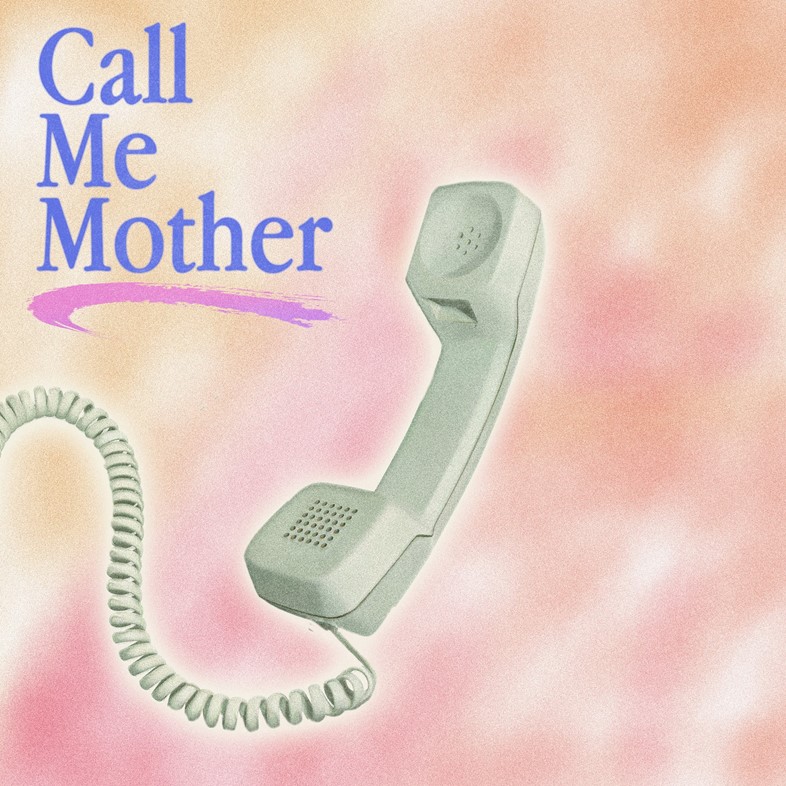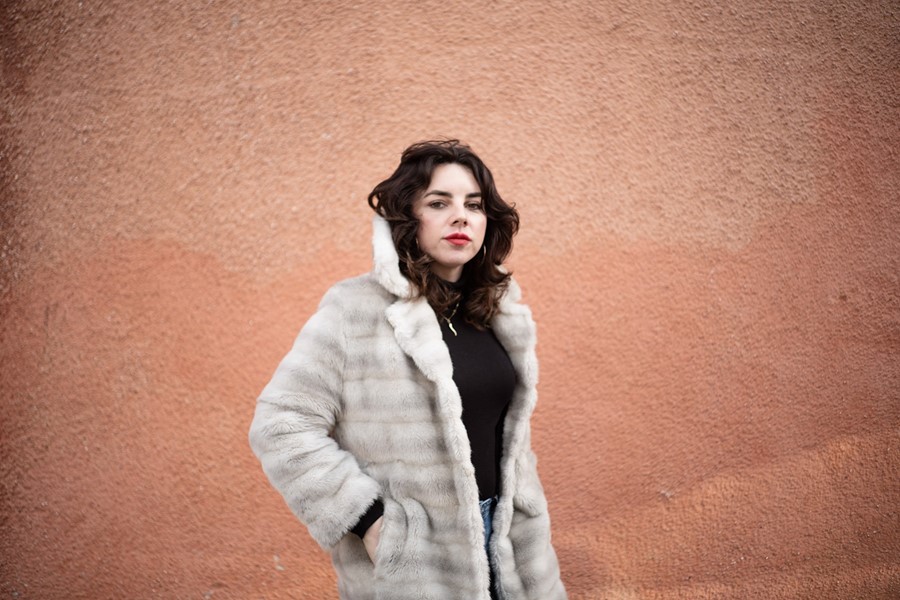The writer, presenter and author talks to James Greig about her new podcast, Call Me Mother, and why re-examining recent history can help us understand the struggles faced by LGBTQ+ people today
Beginning her career as a writer in 2014, Faye quickly rose to prominence as a central figure within LGBTQ+ Britain, adored for her witty culture writing, campaigning work and incisive analysis of trans issues. As well as regularly contributing to outlets like Dazed and Vice, she will also be publishing her first book this September, the hotly-anticipated non-fiction work The Transgender Issue: An Argument for Justice. It’s set to be an authoritative and widely-discussed account of the contemporary struggle for trans rights – something which sadly remains a deeply contentious issue within UK politics.
Call Me Mother, however, is her first foray into podcasting. The newly launched series is based around interviews with a range of LGBTQ+ elders, creating a kaleidoscopic view of queer history as told through a series of personal narratives, from the Church of Scientology to Hollywood to London’s Black gay community in the 1980s, and more. As the presenter of Call Me Mother, Faye makes for a warm and engaging interviewer, while the life stories of her guests are fascinating, illustrative and at times deeply moving. Many of the questions raised in the series remain as relevant and, in some cases, divisive as ever. Here, Faye opens up about the podcast and explains why re-examining recent history can help us to better understand the struggles faced by LGBTQ+ people today.
James Greig: At the beginning of the series, you talk about how you want Call Me Mother to challenge the idea that getting older as an LGBTQ+ person necessitates becoming boring. Did the process of making it, and interviewing all these inspiring and interesting older people, affect your own attitudes to ageing?
Shon Faye: On a personal level, I’m in my early 30s and I have opted out of the trajectory of having a family. So there isn’t much of a roadmap for how I live the rest of my life … until I die. And that has made me really anxious.
Baby boomers reinforced the idea that everyone gets more conservative when they get older. I was really interested in the question of what happens when they don’t: what happens when people who were radical when they were younger still are? Not everyone becomes completely tamed or defanged as they get older. Speaking to someone like Kate Bornstein, who is still working as a writer and is still radical, definitely changed my perception about that. But we still often think about radicalism or change as something that has to come from the young. It was interesting to talk to people who have bucked that trend.

JG: Were you involved in the process of selecting the guests?
SF: Yeah, I helped. The producers had a list and we obviously wanted a good range of guests across identities. For example, I suggested Kate Bornstein because, for one, she’s non-binary, and was one of the first people ever to write about it. She was writing about it in the 1980s and 1990s, which is interesting given that everyone thinks that being non-binary is a new idea.
I also thought it would be interesting to look at lesbian history, because in Britain right now there is a very dominant, transphobic discussion around lesbianism, which puts forward the idea that cis lesbians have always been one thing, that there were never any trans lesbians and that lesbians are really sexless and hate porn. When actually, that’s not the case. So on this week’s episode, I interview Siobhan Fahey, whose film Rebel Dykes is at BFI Flare at the moment. She was part of a punk scene, who were all squatters in Brixton and Vauxhall. It was quite a sexy scene, they had a fetish club, and they were very trans-inclusive for the time, both of trans men (who were maybe butch and had transitioned) and trans women. There was a tension between these ‘rebel dykes’ who were more pro-S&M, pro-fetish, and kind of pro-porn – although lesbian-generated erotica rather than ‘male gaze’ porn. And then, on the other side, there were revolutionary feminists who were maybe a generation older, who were often political lesbians and separatist. They used to smash up sex shops and at one point, they took baseball bats and smashed up Chain Reaction, which was a lesbian fetish club in Vauxhall. So there were tensions between different types of lesbians, and no consensus on what it meant to be a lesbian.
JG: Call Me Mother is trying to foster a sense of cross-generational community. What do you think is standing in the way of these kinds of cross-generational connections happening?
SF: Several things. If you’re LGBTQ you grow up still in a world that’s mostly straight. Unlike any other minority, where you might share your minority status with your family, in this case you don’t. I also feel that because there have been so many narratives of predation, particularly around older gay men and older trans people, lots of people very nervous around talking to younger people. We’re basically told them we’re recruiting or trying to seduce them. Those narratives don’t seem to go away, and cross-generational contact is still heavily policed.
There’s also the question of where do these people actually meet? Because if you’re younger, you’re probably going out to bars and clubs and, while older people might be there sometimes, for the most part they’re probably not. Personally, I made older LGBTQ friends at film screenings and cultural events in London, but obviously that’s all gone now thanks to Covid. I think that’s one of the reasons why this podcast got commissioned, was because there are a lot of younger LGBTQ people who are locked down in maybe homophobic or transphobic or biphobic environments. If you’re twenties now, you’re fucked. You can’t go anywhere, you can’t go out, you can’t meet people. I’m not trying to be super-Kumbaya about it but I think this podcast appeals because it’s a way to encounter these people that you might not otherwise get to at the moment.
JG: The podcast features guests from a wide range of different demographics, in terms of race and gender identity, of all whom have different histories and perspectives. To what extent do you think that the “LGBTQ community” is a useful category or is even something that exists? What’s the value of grouping us all together under a larger umbrella?
SF: It’s an interesting question, right? I think the value of it is more as a political coalition than a ‘community’. Even among my own group, white trans women, I still probably have more in common with other trans women who grew up in gay male scenes, than I do with the kind of trans woman who works in tech and identifies as a lesbian. It’s more than just our identity: it’s about our life experiences, who our friends are and where we go out.
We ourselves might really care about these differences, and I think the internet and social media really encourages the idea of atomising your identity. And yes, that’s fine. But often the people who are discriminating against us or oppressing us don’t actually give a fuck about the differences between us, and that’s a key thing to keep in mind. But that said, I wanted a spectrum of identities on the podcast because I realised that these histories really are unique.

JG: What present queer narratives do you think can be complicated by engaging in queer history?
SF: All of them, basically. There’s constant revisionism in the here and now for political means. We’re coming into Pride season now, and we’ll see again the constant revisionism about Stonewall – people still relitigate current divisions through the retelling of that story. For example, I don’t think Marsha P Johnson ever called herself a trans woman. The fact that she’s being reified into that category now, when that was never an identity she would have used herself, is a kind of shame. This happens because people want to push the narrative that trans women were there at the beginning, but what it actually does is flatten out the fact that there has always been gender-nonconforming people, which is more interesting. We’re not sure who was a gay drag queen and who was a trans woman because these identities are newer, and acknowledging that might be uncomfortable. But I’m in favour of trying to translate the identities people would have used for themselves into a modern understanding, rather than retrospectively applying labels.
JG: I find it quite strange when cis gay men talk about Stonewall through this lens of “Black trans women fought for me, and that’s why I support trans rights!” It turns it into this transactional thing. If you’re cis, I don’t think your support for trans people should be contingent on them having done you a favour 50 years ago.
SF: And the thing is: people say “they fought for our rights”, but the fact is they were Black, street sex workers who were being oppressed by the police. They were fighting for their own rights, which is perfectly fine. But a white gay man wouldn’t have been oppressed in that way. One of the guests this week is Sandra Caldwell, who appears on Disclosure (a Netflix documentary about the history of trans representation in Hollywood), and she’s a Black trans woman who basically says that growing up was fine. You consume these misery narratives all the time, so it’s interesting to hear from someone in her late sixties who had a career, is married, and seems to have a comfortable life. That flips the narrative. I’m not saying that Black trans women aren’t oppressed, but maybe it’s healthier to have some balance. Ultimately, I don’t think misery porn is politically helpful.
JG: The Aids crisis is a recurring theme throughout the series, which, thanks to the success of It’s A Sin has become a much-discussed topic. How were you thinking about representing this history and did your perspective change at all afterwards?
SF: It’s A Sin has done really well, and that’s made a lot of younger people think about the Aids crisis in recent weeks. But there has occasionally been this romanticised view that’s like “Oh, everyone died. We lost a generation” and some of these people are still alive. Marc Thompson [an HIV campaigner interviewed in the series], for instance, was diagnosed HIV positive in the middle of the 80s and he’s still around. How many young people are aware of his work or engaging with it? It’s easy to have this sense of the people who were lost, and it’s important to remember them. But we also need to remember that there were a lot of people who survived, and talk to these people too.
Call Me Mother is out now.
